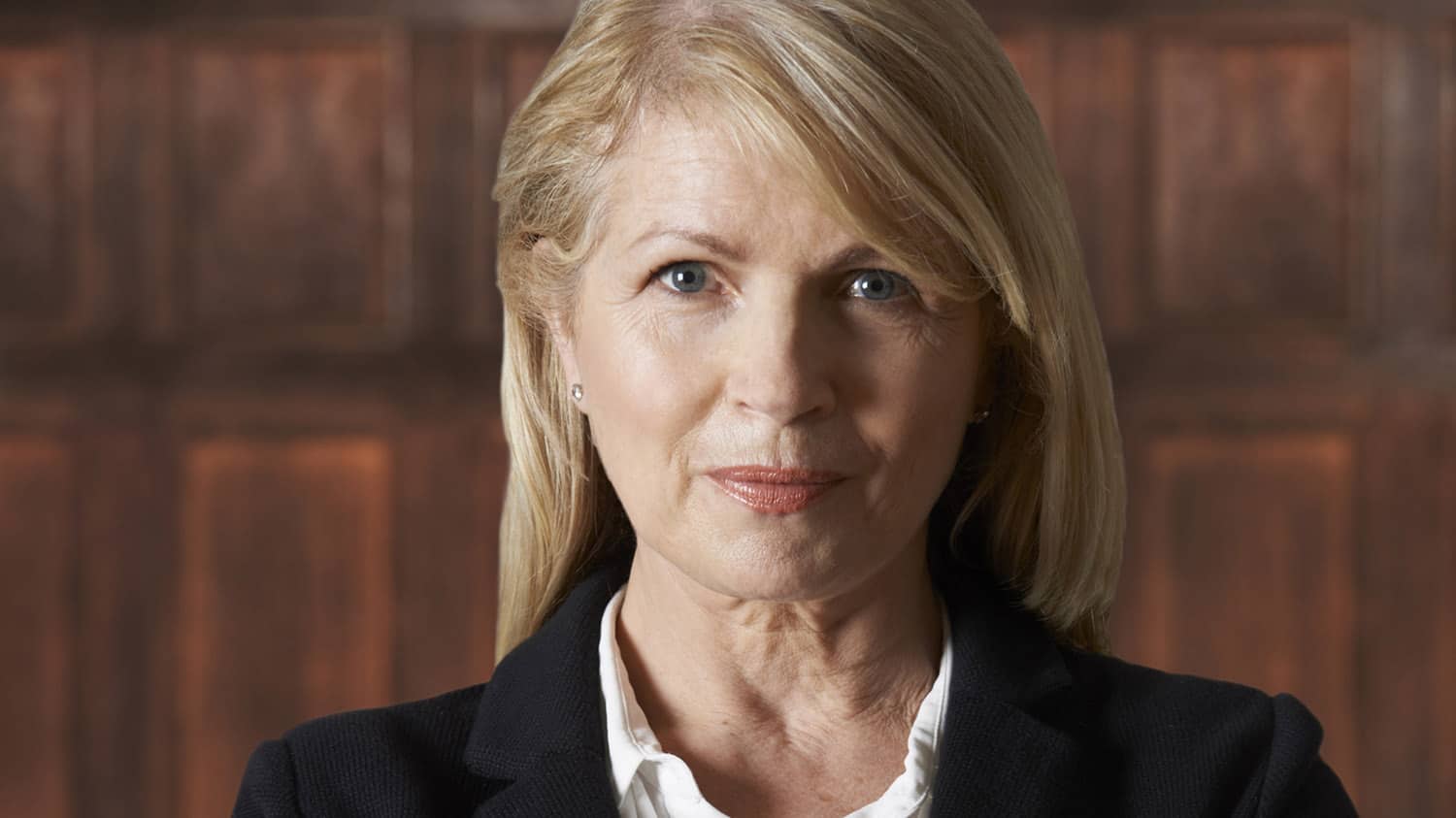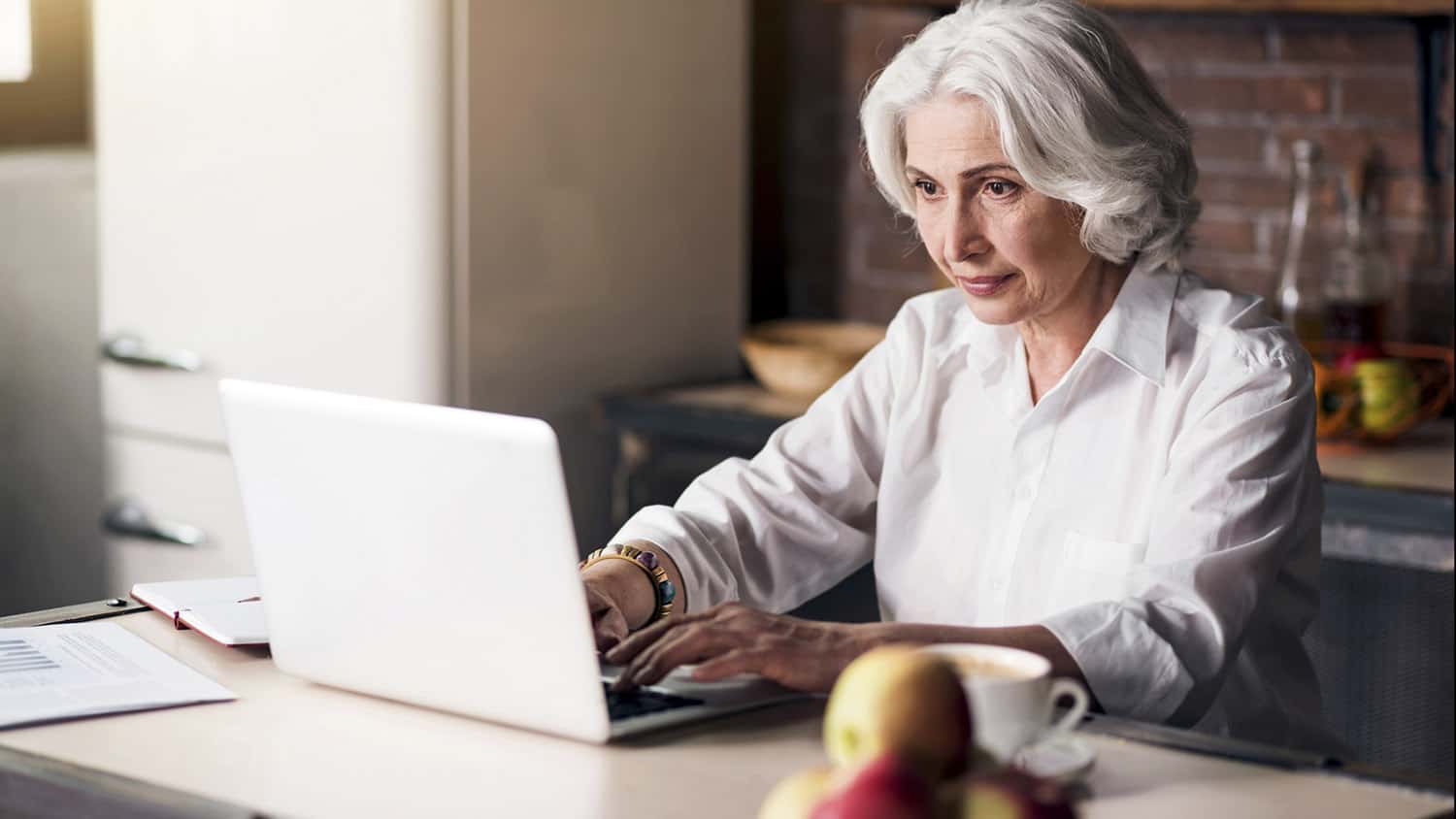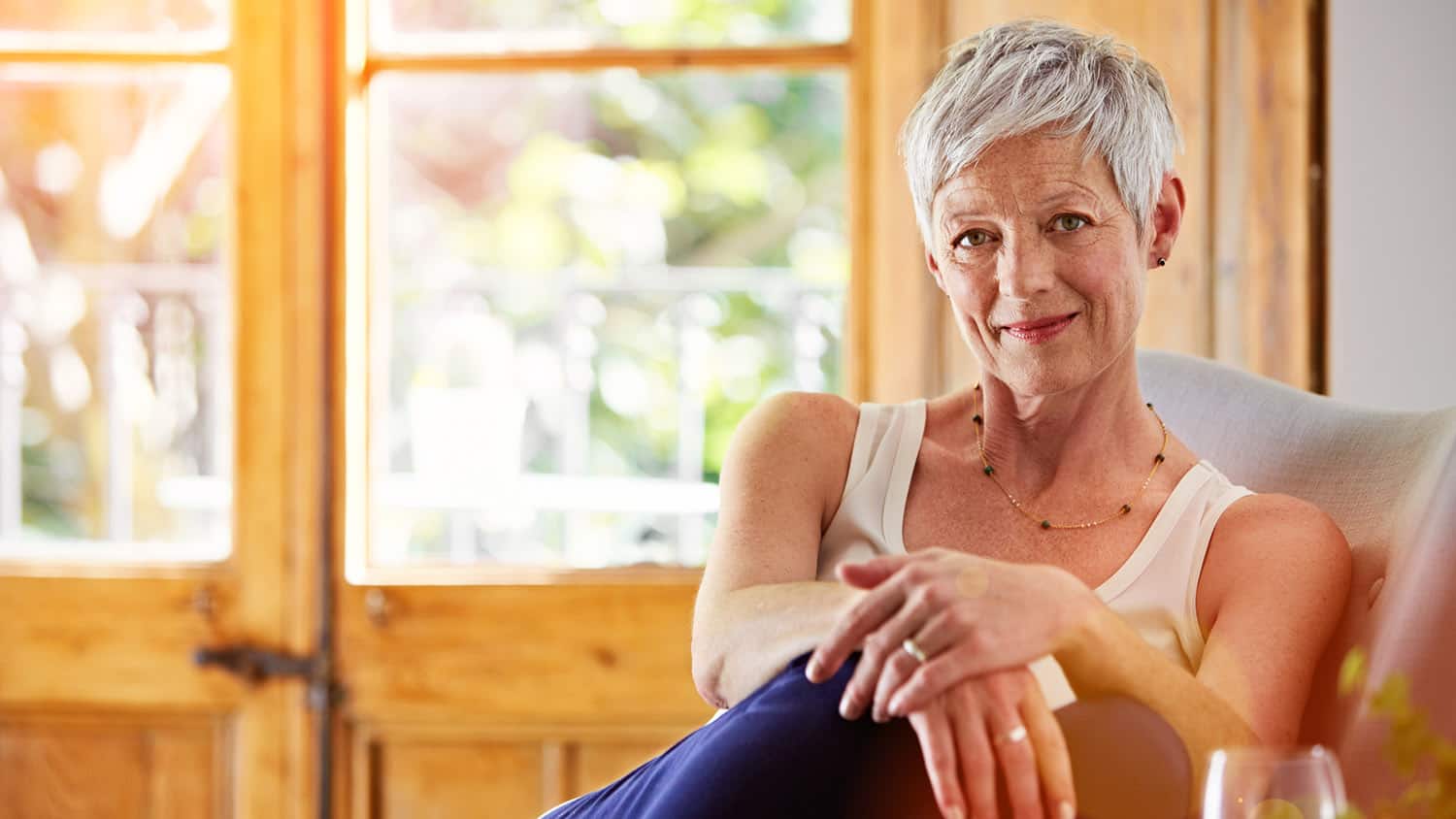
Find the Silver Lining in Your 60s: Unconditional Confidence in Challenging Times
There’s a saying I’d like to explore with you: “Believe you can or believe you can’t, either way you’re right.” It points to the importance of confidence and positive self-belief in accomplishing our goals at any age, but more so in the years after 60. The challenge is maintaining that confidence through tough times.
If we’re struggling to watch our weight, our experiences of fear and self-doubt can accumulate, and we might feel the need to prove our self-worth. We might think that the only cure for such feelings of inadequacy is to cover them up and try to make ourselves into something better. Not true!
Negative Attitudes
You don’t struggle with losing or maintaining your weight because there is something fundamentally wrong with you. The real causes are negative attitudes toward yourself, mistaken ideas about dieting, and unhelpful habits that have built up over time.
Covering up the qualities that make you feel self-conscious or embarrassed isn’t necessary and is usually counterproductive. It’s much better to adopt a more positive attitude toward yourself, exploring new perspectives on dieting, and undoing some of your unhelpful habits.
In an earlier article I discussed the Positive Choice Model that was introduced in my book, The Best Diet Book Ever: the Zen of Losing Weight. It empowers you to make the choices that support your goals, without guilt or self-punishment when you slip.
It helps you take a broader perspective, so that having one bad day won’t undermine your whole program. Even in the midst of struggle or discouragement, there can be a joyful moment, like rays of the sun breaking through dark clouds.
Appreciating those moments can transform your outlook and open the door to experiencing unconditional confidence.
What Is Unconditional Confidence?
Unconditional confidence means trusting in your self-worth and capabilities, regardless of how things have been going lately. You can believe in yourself, even if you’ve strayed from your diet program in some way.
If you lack confidence, slipping up makes it easy to see yourself as a hopeless case, a failure at dieting. But with the Positive Choice Model and unconditional confidence, you can see yourself as a successful dieter who has just overeaten on this occasion. How you see the situation is up to you.
When you have an attitude of unconditional confidence, day-to-day challenges won’t undermine how you feel about yourself. You may not be able to control what happens to you, but you can choose how you will respond to it.
Reflect on the times you’ve eaten well, exercised regularly and overcome challenges to your program. The better you feel about yourself, the better you can weather the ups and downs you’ll encounter during the course of your weight-loss journey.
The Importance of Awareness
The Positive Choice Model offers you the freedom to choose rather than being imprisoned by punishing restrictions.
Having a side salad with your hamburger instead of fries (a choice commented upon eloquently by comedian John Mulaney) is a positive choice if you choose to skip the French fries as part of your weight-loss program.
Denying yourself and feeling like it’s a punishment to eat the salad will not only make you unhappy, it will also add pressure on your psyche that could lead to a future binge of fried-food madness.
It is critical to understand that to make a choice, there has to be the space and time to do so. Usually, there’s an automatic reaction from thought to eating. It happens so fast that the food is in your mouth before you know it. There is no awareness of how it happened.
You need to have enough time to be aware of what’s going on and space to respond rather than react. Such decision points are like forks in the road. When you’re speeding along, you may miss your turn and find yourself heading the wrong way.
Without awareness of a decision point, there is no option: when the impulse arises, you reactively eat.
With awareness, when the impulse arises, instead of reactively eating, you have the choice to say, “No, thank you.”
When you opt not to eat, it’s a positive choice, not a restriction or punishment. To be able to make that choice, you need time and space for awareness. Your goal is to experience that awareness as often as possible.
Questions to Ask Yourself
- What situations make me get down on myself?
- When I feel a little hungry (or bored!), do I go on automatic and start snacking before I even realize what I’m doing?
- Do I feel like my diet is based on denying myself or on making positive choices to eat things that will be healthier and actually make me feel better after eating them?
- When I slip, do I feel like there’s something wrong with me or do I accept that everyone makes mistakes at times?
- Are there ways I could frame situations that reflect a more confident, positive attitude?
When thinking of unconditional confidence, what’s the first thing that comes to your mind? Do you tend to blame yourself for each and every slip in your diet, behavior, etc.? What do you think about practicing awareness in relation to your eating habits? Please share your view points in the comments below.
Tags Inspiration






